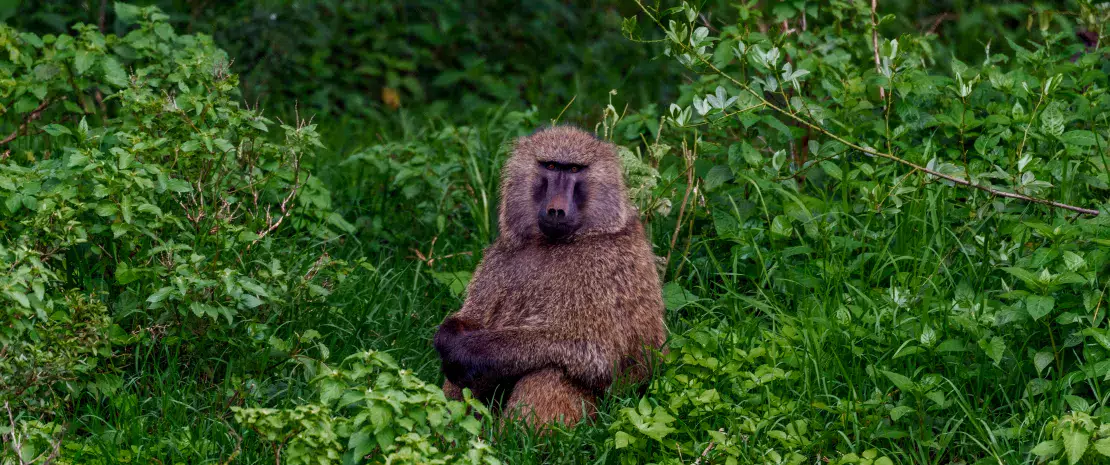Could our gut microbiota descend from baboons?
According to a study that is shaking up our beliefs in terms of microbiota evolution, the gut microbiota is significantly influenced by environment and diet and does not result from the co-evolution between the microbial ecosystem and its host.
- Learn all about microbiota
- Microbiota and related conditions
- Act on your microbiota
- Publications
- About the Institute
Healthcare professionals section
Find here your dedicated section
Sources
This article is based on scientific information

About this article
The study of gut microbiota evolution led many researchers to compare humans and primates. Their works, conducted on a limited number of species, indicated that bacteria found in our gut microbiota descend from bacteria that colonized the gastrointestinal tract of our common ancestors and that they co-evolved. However, although humans are genetically close to large primates (bonobos, chimpanzees), their digestive system is closer to that of Old World monkeys (baboons, macaques) whose environment and dietary habits are quite similar to humans’.
A microbiota closer to that of Old World monkeys
To support the hypothesis stating that these two parameters have a much larger impact on the gut microbiota composition than commonly believed, an American team compared the bacterial flora and its different functions between human populations living in industrialized or non-industrialized countries and 18 wild primate species. While the gut microbiota of populations living in industrialized countries was very different from that of other primates, the gut microbiota of populations living in non-industrialized countries was, on the contrary, very similar to that of primates. There are, however, differences: when compared to the microbiota of other primates, that of humans has unique microbial characteristics (it contains some species, but others are lacking), specific functional pathways and a greater inter-individual variability. The latter could reflect the greater adaptability of humans to new environments. More surprisingly, the gut flora of humans had more similarities with that of baboons than with that of their monkey ancestors.
The influence of environment is underestimated
These results emphasize the influence of environment, diet and physiological adaptations on the gut microbiota composition, especially on their functional capabilities, and belie the idea that it is almost exclusively the result of the co-evolution of bacteria and their host. The authors believe that these discoveries provide a new perspective on the role of the gut microbiota in the evolution of mankind.
Sources:
Amato Katherine R., Mallott Elizabeth K., McDonald Daniel, et al. Convergence of human and Old World monkey gut microbiomes demonstrates the importance of human ecology over phylogeny. Genome Biology. 20:201 2019











